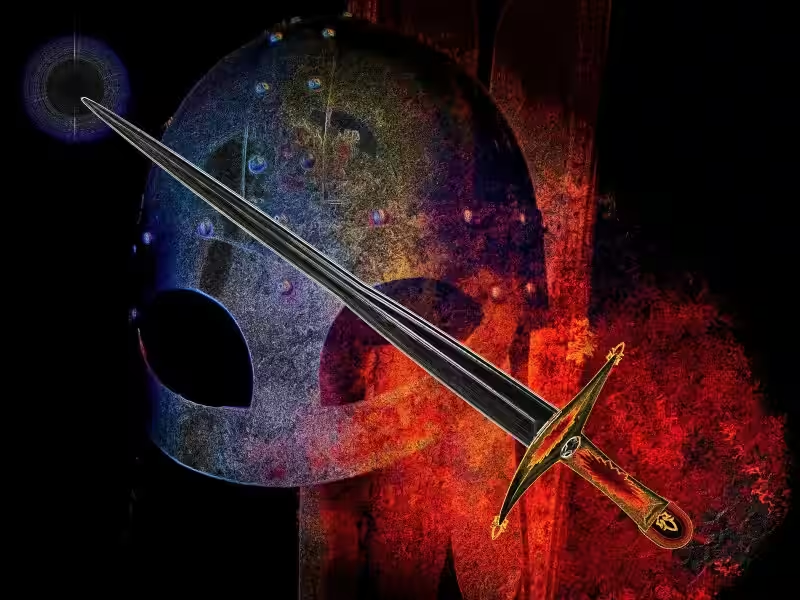Locust Spiritual Meaning: Unpacking the Symbolism of This Powerful Creature

The locust, a seemingly humble insect, holds a surprisingly profound and multifaceted spiritual meaning. Its image, conjuring up both devastation and renewal, appears across diverse cultures and spiritual traditions, making its symbolism rich and complex. Understanding the possible interpretations of a locust encounter can offer valuable insights into your life and path.
Positive Symbolism of the Locust
The locust's positive symbolism is often overlooked, overshadowed by its more commonly known destructive nature. However, focusing solely on the negative ignores the potent message of resilience and renewal inherent in this creature.
Its swarming behavior, while capable of devastating crops, also represents the remarkable power of unity and collective action. The sheer scale of a locust swarm highlights the strength found in collaborative efforts, emphasizing the potential for achieving great things when individuals work towards a common goal. This image speaks to the importance of teamwork and shared purpose in overcoming obstacles.
Further, the locust's remarkable ability to regenerate and adapt to changing environments serves as a powerful symbol of resilience and inner strength. Spiritually, encountering a locust can signify a period of personal growth and transformation. It suggests a time of great potential for overcoming challenges and achieving success through focused determination. The locust encourages embracing change and trusting your instincts during periods of uncertainty. The locust as a spirit animal, totem, or power animal often signifies adaptability and inner strength.
Negative Symbolism of the Locust: A Warning of Impending Change
The destructive potential of locust swarms is undeniable, leading to a more ominous interpretation of their symbolism. Large swarms are often associated with feelings of devastation, chaos, and upheaval. Seeing a locust in this context can serve as a stark warning of impending difficulties, requiring resilience and adaptability to navigate turbulent times.
This negative symbolism emphasizes the potential for destruction and the importance of mindful action to avoid negative consequences. It serves as a potent reminder to remain grounded and focused amidst adversity. It is a call to assess your current path and make necessary changes before facing significant challenges. The locust's message here is not one of despair, but a prompt for self-reflection and proactive planning.
Interpreting Locust Encounters: Context is Key
The meaning of encountering a locust depends heavily on the individual's personal context and emotional response. Your feelings towards the locust are crucial in interpreting its message.
If the encounter evokes a sense of hope, empowerment, or even awe, it aligns more with the positive interpretations of abundance, renewal, and the strength found in collective action. The locust is encouraging you to tap into your own inner reserves and to collaborate with others to achieve your goals.
Conversely, feelings of fear, unease, or even revulsion suggest a need for caution and preparedness for challenges ahead. The locust may be a warning to prepare for upcoming difficulties, prompting you to strengthen your resilience and adaptability. The locust's message is not simply positive or negative but a call for awareness and introspection. Pay attention to your intuitive feelings; they hold the key to unlocking the deeper meaning of your encounter.
Locust as Spirit Animal, Totem, and Power Animal
The distinctions between a spirit animal, a totem animal, and a power animal further nuance the spiritual meaning of the locust. While all three share a common thread of resilience and adaptability, their emphasis varies.
- Spirit Animal: The locust as a spirit animal emphasizes embracing change and adapting to new circumstances with grace and strength.
- Totem Animal: The locust totem encourages introspection and deep personal growth, prompting you to examine your own destructive tendencies and learn from them.
- Power Animal: The locust as a power animal bestows strength and empowerment, helping you to overcome obstacles and achieve your goals with focused determination.
Each classification highlights a different facet of the locust's multifaceted nature and its potential guidance within your life journey. The locust's symbolism invites reflection on your capacity for both destruction and creation, urging you to harness your inner strength to navigate life's complexities.
The Locust in Dreams and Their Interpretations
Encountering a locust in your dreams offers another layer of potential meaning, often reflecting your inner state and subconscious concerns. The specific context of the dream is essential for interpretation.
- Single Locust: This may symbolize someone draining your energy, highlighting the need to protect your personal boundaries.
- Locust Swarm: A swarm often foreshadows turbulent times ahead, requiring preparedness and adaptability.
- Locust in the Home: A locust in your home might point to wasteful spending or a need for greater financial responsibility.
- Eating Locusts: This surprisingly positive image symbolizes a forthcoming reward for your efforts and perseverance.
Dreams involving locusts emphasize self-awareness, the importance of healthy relationships, and the inevitability and potential benefits of transformative change, mirroring the waking-life symbolism of this powerful insect. The locust spiritual meaning within a dream context calls for a careful analysis of the dream's overall context and your feelings associated with the locust's presence.
The Locust in Religious and Cultural Contexts
The locust's spiritual significance extends far beyond personal interpretations, appearing prominently in numerous religious and cultural contexts. The Bible, for example, utilizes the locust as a powerful symbol with both literal and figurative meanings. Literal descriptions of locust plagues highlight God's power over nature and serve as a potent reminder of the consequences of disobedience. Figuratively, locusts represent overwhelming forces, divine judgment, and even invading armies. However, the locust's symbolism is not exclusively negative; it sometimes represents God's provision even in hardship, the importance of community, and the transformative power of faith. The locust spiritual meaning within religious frameworks offers a powerful lens through which to examine themes of judgment, redemption, and divine providence.
In conclusion, the locust spiritual meaning is far from simplistic. It's a complex and nuanced symbol reflecting both the potential for destruction and the power of renewal, resilience, and collective action. Understanding its multifaceted symbolism can provide valuable insights into your life, urging you to embrace change, cultivate inner strength, and navigate life's challenges with both wisdom and determination. By paying attention to the context of your encounter—be it a waking experience or a dream—you can unlock the potent message the locust holds for your personal journey.
Locust Spiritual Meaning: Frequently Asked Questions
What is the overall spiritual significance of the locust?
The locust, a creature of both immense destruction and remarkable regeneration, holds profound symbolic weight across cultures and spiritual traditions. Its symbolism is multifaceted, encompassing both positive and negative connotations depending on the context and interpretation. Positively, it represents abundance, renewal, unity, and collective action. Negatively, it symbolizes devastation, chaos, and upheaval. Ultimately, encountering a locust spiritually calls for awareness and introspection.
What are the positive symbolic interpretations of a locust?
Positive interpretations of the locust focus on its capacity for renewal and abundance. The swarming behavior, while destructive on a large scale, also signifies the power of unity and collective action. Spiritually, the locust encourages adaptability, resilience, and inner strength, urging individuals to embrace change and transformation. It can signal personal growth, spiritual enlightenment, and the potential for overcoming obstacles.
What are the negative symbolic interpretations of a locust?
The locust's destructive nature leads to negative interpretations, associating it with devastation, chaos, and upheaval. Seeing a locust in this context can be a warning of impending difficulties, requiring resilience and adaptability. This symbolism emphasizes the potential for destruction and the importance of mindful action to avoid negative consequences.
How do I interpret my personal encounter with a locust?
The meaning of a locust encounter depends heavily on your personal context and feelings. A feeling of hope and empowerment aligns with the positive interpretations. Conversely, feelings of fear or unease suggest a need for caution and preparation for challenges. The locust's message isn't simply positive or negative, but a call to self-awareness.
What is the difference between a locust as a spirit animal, totem, and power animal?
While all three—spirit animal, totem animal, and power animal—share the common themes of resilience and adaptability, they offer nuanced perspectives. The spirit animal emphasizes embracing change; the totem encourages introspection and personal growth; and the power animal provides strength and empowerment to overcome obstacles. Each emphasizes a different facet of the locust's nature and its potential guidance in your life.
What does a locust symbolize in dreams?
A locust in a dream can have several meanings. It might indicate someone is draining your energy, requiring you to protect your boundaries. It could also foreshadow significant transformation. A swarm suggests turbulent times ahead, while a locust in your home points to wasteful spending. Eating locusts in a dream symbolizes a forthcoming reward for your efforts. The overall message emphasizes self-awareness and healthy relationships.
What is the biblical significance of the locust?
In the Bible, locusts are a powerful symbol with both literal and figurative meanings. Literally, they represent devastating plagues and famine. Figuratively, they symbolize overwhelming forces, divine judgment, invading armies, and even demonic forces. However, locusts also hold positive connotations, representing God's provision, simple devotion, and community cooperation. The Bible's use of locusts offers a multifaceted perspective on judgment, repentance, and God's restorative power.
What lessons can I learn from the locust's symbolism?
The locust's symbolism teaches us about the duality of creation and destruction, the importance of adaptability and resilience in the face of change, the power of collective action, and the necessity of self-awareness and mindful action. It encourages introspection, personal growth, and harnessing inner strength to navigate life's complexities. It reminds us to consider the impact of our actions on others and to seek "greener pastures" when necessary.








